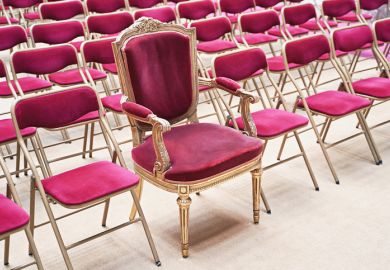点击阅读英文原文
根据牛津大学的一项调查称,该校的一名教授在获奖的书籍中没有适当地认可中国合作者的贡献,这是“严重的科研不端行为”。
牛津大学中国人文地理学教授安娜·劳拉·温赖特所著的《逆来顺受的行动主义:在中国农村与污染共存》(Resigned Activism: Living with Pollution in Rural China)一书,获得2018年英国社会学协会(British Sociological Association)和“允许思考”(Thinking Allowed)节目联合发起的“民族志奖”(Ethnography Award)。该书之所以得以完成写作,部分得益于她调查了那些出现与环境污染相关的健康问题的人群。
然而,根据《泰晤士高等教育》了解到的牛津大学内部报告显示,合作者投诉劳拉·温赖特教授“未能阐明书中的很大部分成果是由多人合作完成的”,并且在使用同事的研究成果时,也未向同事咨询。
健康环境与发展论坛的负责人、原告贺珍怡(Jennifer Holdaway)和王五一表示,劳拉·温赖特教授承认,她自己“没有参与研究设计与开展”。
申诉人称,在长达25页的章节中,有14页是河海大学陈阿江2013年发表的一篇论文的摘要,其他部分则借鉴了陈阿江和劳拉·温赖特教授于2016年共同发表的一篇论文。
一个三人专家小组驳回了劳拉·温赖特教授的说法,即书后面方法论部分的致谢对同事们的贡献给予了足够的认可。专家小组还批评了她“对陈教授和他的团队所做工作的描述,因为它倾向于强调他们所做的现场调查工作,而没有对他们的分析工作给予足够的认可”。
调查得出结论,在很大程度上,其他中国学者的智力贡献也遭到忽视。例如,汕头大学医学院李丽萍教授招募学生前去采访,用大学基金支付他们的差旅费和劳务费,并在与劳拉·温赖特教授合作时,亲自采访了当地的卫生工作者。然而,报告称,让她感到“震惊”的是,《逆来顺受的行动主义》一书中,似乎包括了李教授和她的学生所做的工作,却没有解释这不全是劳拉·温赖特教授一个人的功劳。
根据这份报告,牛津大学劳拉·温赖特教授辩称,她在这一章中只“简要提及”了这些采访,而章节的重点是她对该村的“详细访问记录”和亲自进行的采访。
劳拉·温赖特教授告诉《泰晤士高等教育》,她“认为自己在出版图书时,已经充分咨询了合作者,并在书中对他们的贡献加以致谢。如果说这种致谢还不够充分的话,纯属无心之举。”
专家小组的结论是,虽然劳拉·温赖特教授“无意欺骗或误导读者”,但她的做法“太粗心大意,对他人的智力贡献未能谨慎处理”。专家小组认定,她“在研究中行为不端,在未得到许可的情况下挪用他人的成果,并谎称自己参与了某个研究项目”。
尽管申诉人要求召回麻省理工学院出版社出版的这本书,并撤销本书获得的奖项,但专家小组却建议作者在网络版书籍中修改致谢内容,并为劳拉·温赖特教授指派一名学术导师。
五名中国教授在给牛津大学教务长吉利安·艾特肯(Gillian Aitken)的一封联名信中称,这一处罚决定“完全不可接受”。这五位教授分别是:王五一、陈阿江、李丽萍、方菁和张世秋,他们呼吁劳拉·温赖特教授全面公开道歉,并呼吁牛津大学“取消她因为这本书而获得的奖励和职位”。
他们还质疑牛津大学未采取补救措施的“根本原因”,表示:难道是因为这种学术不端行为的受害者是中国学者吗?”
王五一教授告诉《泰晤士高等教育》:“我们当然认为,牛津大学存在双重标准,如果合作者来自欧洲或美国,情况可能就会不同。”
牛津大学的一名发言人表示,牛津大学非常严肃地对待“对科研不端行为的指控”,但同时指出,专家小组得出结论,劳拉·温赖特教授并非有意欺骗。他补充说:“在任何情况下,牛津大学都有信心全面贯彻学术诚信方面的政策,并采取稳健、切合实际的行动。”




